
I swear right now that everything your gonna read in here happened 100% true. Cauze when I used to look back at all this crap that went down with me, sometimes I wouldn’t even believe it myself. I used to trip a lot on shrooms and acid, plus get high off weed or hash in weird places which can mess up how your ass remembers shit. (Though shrooms can help you with other stuff, but I’ll tell you about that later.) The thing is, when you start writin’ down a story from your life, it totally makes you sort shit out, so I’ll admit I’m doin’ this to understand what the fuck happened myself. Still, for anybody who wants to read it, it’s a real good story even though there’s parts in here that get kinda wigged. (p.3)
I must confess to approaching this novel with a quiet hostility. Both the précis I’d read online and the opening passage quoted above had me assuming this was yet another incarnation of that perennial self-published turkey, “I Was a Teenage Junkie”. Having read a dozen or so such novels over the years – some by real junkies, others by posturing Lit grads and con artists, one or two by gifted writers – I still struggle to locate the appeal. Yes, growing up with absent or abusive parents is tough. Yes, recourse to drugs and alcohol is a disastrous response to it. No, it isn’t necessarily a sound basis for a novel. It’s a situation, that’s all. You need a voice, a character, or a plot (preferably all three) in order to make something more out of it than trite suburban melodrama or self-indulgent therapy writing. That isn’t easy. You need to create empathy for a character who is both a victim of circumstance and the idiot-architect of his own annihilation, and craft a compelling plot from a way of life that is single-mindedly repetitive, stupid and dull.
Fortunately, this isn’t another one of those books. The protagonist is a stoner, but using and dealing end up being almost incidental. They’re part of the premise, and they colour some of what follows, but they aren’t the focus here. Andy ‘Drew’ Nowak, 20 – son of an absent father and alcoholic mother, brother to a meth head sister, and resident of “Berwyn frickin’ Illinois” – is trying to improve his life. He’s moved out, found a job, and enrolled in community college. But he owes “this dude Diego” two thousand dollars for wrecking his uncle’s Buick and the only way he can raise the cash in time is to go back to “sellin’ weed, which I promised after high school I wouldn’t do no more.” When Andy arranges a laundromat exchange with his client of choice – a local property magnate with a serious smoking habit and “like three gallons of hair on his face” – Big Beard doesn’t show. But a classy thirtysomething Euro blonde named Audra does, and promptly offers Andy a thousand bucks. “I want you to eat me out,” she declares when she gets him home and promptly strips. “Please. You’ll do it won’t you?” Andy obliges. Days later Audra tracks him down. They strike up a friendship which promises more until, without warning, Audra leaves for Lithuania. Bereft, Andy takes the most impulsive step of his life (so far). He sells up and follows her on a one-way ticket. Arriving in Vilnius with little more than a notebook, fresh underwear and a box of Trojans, Andy falls in with a bunch of hard-drinking locals and starts down a path of self-discovery…
Gint Aras’ Finding the Moon in Sugar is a surprising, imaginative and gently humorous coming-of-age tale. It’s about a fish-out-of-water, a basically good kid trying to find a way out of his suffocating dirt bag of a life. It’s about figuring out what you want, and learning to trust that you’ll know how to get it once you know what it is. It deals with what Andy might call some “totally intense questions” and “other hardcore shit, like for real”.
If that Andy-style description strikes you as mildly funny but also, on reflection, hackneyed and vague, you’ve hit upon what I both loved and loathed about this book: the voice. A male ingénue in the big bad world can be a wonderfully effective first-person narrator, full of unwitting irony and innocent charm. Huck Finn’s beguiling voice and naïve viewpoint satirically anatomize and dramatize the world around him. Holden Caulfield is absurd and endearing in equal measure. Andy Nowak? He’s mostly just inarticulate, and it grates. We get through the stock elements of his vocabulary in the first few chapters and they’re deployed unrelentingly thereafter:
dude
like
wigged
jacked
lubed (inebriated)
sloppy (tearful)
kinda
frickin’
freakin’
bust(ed) out
totally
for real
cauze (for because)
your (for you’re)
shaked (for shook)
bones (for money).
I’m all for unique narrative voices – like, frickin’ hooray for originality, dudes – but Andy’s voice gets old very quickly because it has such a limited range. This novel is all about his life-changing responses to new people, new places and new experiences, but in Andy’s mouth it all sounds much the same. Yet having said that – and here’s where the love eclipses the loathing – there are moments when Andy’s naïveté and voice combine to be both comic and wonderfully expressive. For example, Andy on opera:
I know probably lots of you never heard no opera before, or maybe you seen it on Channel 11 around Christmas when it’s just a fat woman and a guy in a tux singin’ real bored. But let me explain some shit right here, cauze most opera ain’t like that. Most is totally insane and tripped out. There’s always some girl who loses her marbles, like she finds out her husband made sex with a demon queen, so she cuts up her babies and poisons her husband and then falls in a fire pit. There’s always a devil up to no good…he helps this nasty old guy turn into a stud so he could get the hottest girl in town for one more good time before he goes to hell. Another real old opera goes about a whorehouse in Turkey. In this one called Mephistophe, some ballet dancers come on stage for a serious orgy with devils. Opera writers make sure to put lots of sex in there, only it’s not regular sex where your done and just sleep. In opera you can’t handle it, so you stab a poison knife in your chest or jump in a fire. A beautiful girl singin’ that shit will kick your ass all over the place. (pp.152-3)
Then when aspiring opera student Dana starts singing:
Like the first sound Dana made scared the shit out of me. She spit fire right through my guts. The whole song was made from energy feelings, like “That’s it. I’m gonna have one crazy music orgasm in front of 25 people.” She had to breathe real fast and quick, but each time the air went deep in her lungs and her head flicked fast and her whole shoulders and arms made power. And fire kept comin’ out, like inside she was burning. It makes you real horny cauze she’s givin’ you opium and sayin’ evil promises. You know it’s lies and you should never believe it, but maybe you should believe it…yes, you should, you should say damn straight, let’s have one minute of crazy fire love and then get burned up in a forest fire! (p.153)
Such moments delight because Andy’s innocent frankness captures something a more learned analysis never could. But 90,000 words at 5% of that intensity? It gets tedious, dude. It’s especially frustrating because on the few occasions that Aras flicks the switch to a different mode – such as the extracts from Audra’s notebooks, or Ken’s letters from Vietnam – he reveals a lyrical gift that could light a long novel from beginning to end. I wound up feeling like I was in the hands of a gifted writer who was deliberately hiding his talent. Of course, Andy’s voice is a deliberate creative choice, and not a failure of technique on Aras’ part. But knowing that doesn’t make it less irritating. Perhaps these interludes simply broke the illusion that Andy was telling the tale – they reminded me that some other, vastly superior, authorial presence was pulling the strings. I often wished Andy just would shut-up and let this other voice take over.
The plot works, but it drags. Andy’s story isn’t driven by a compelling need. Apart from his comparatively momentous decision to follow Audra to Lithuania, he’s mostly carried along by other people. It gives nothing away to reveal that this passivity turns out to be central to the novel’s theme. What begins as a kind of “stoner picaresque” becomes a genuine bildungsroman as Andy grapples with the sobering question that twice arises from the trippy haze: What do you want? What kind of a life do you want for yourself? Again, in these moments, Andy’s simple voice shines:
Did you ever ask that question What do you want without no bullshit? Fuck, I got so scared. Cauze when you ask it clean like that, then you can see all the lies you say all the time to yourself. So I had to be real with it…I had to go with the thing that was most true. (p.107)
At the heart of this novel is Andy’s growing up: the crisis of meaning, the intimations of mortality, the unresolved father issues … all that good ol’ literary meat that guys love to chew on. It’s about masculinity and purpose, about self-awareness and self-determination against the cynically low expectations of others, and about the need to grab life’s steering wheel (in this case quite literally) from the crazies in your car. But it takes a long time for this theme to emerge, and some readers may lose interest. Aras does bring the story to a convincing climax, but not before veering off into a surprising late byway – a rather beautiful subplot about Andy’s grandparents and Vietnam, that might have proven effective grounds for a fine (if not better) book in its own right. Again, I had this weird sense that the author was holding out on me.
It’s a pattern repeated several times in this novel – or in my reactions to it, at least. Out of Andy’s bland mumblings there suddenly erupts a moment or a character that is of a different order of excellence: the death of Audra’s father and his wake, in which the “moon in sugar” reference is explained; the poignant revelations of Andy’s shroom trip in the forest; Audra’s journal; Ken’s letters. These are all signal moments that Gint Aras is a writer of great promise, but they don’t add up to a great novel. It’s an original, amusing and occasionally memorable one, but it’s also a frustrating one because it seems clear that the author has so much more to offer. I want to read his next book, and soon.
Get an Editorial Review | Get Amazon Sales & Reviews | Get Edited | Publish Your Book | Enter the SPR Book Awards | Other Marketing Services















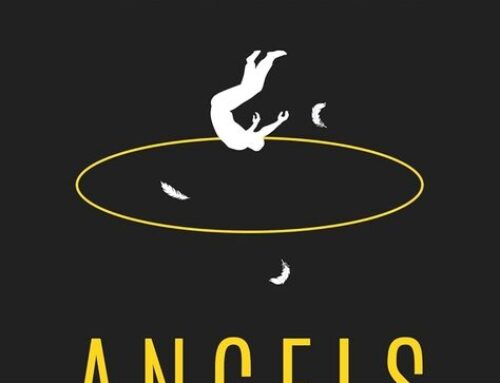
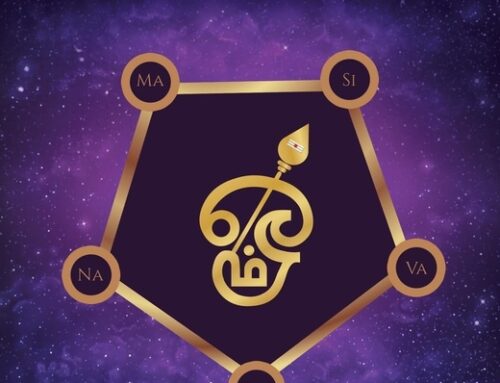

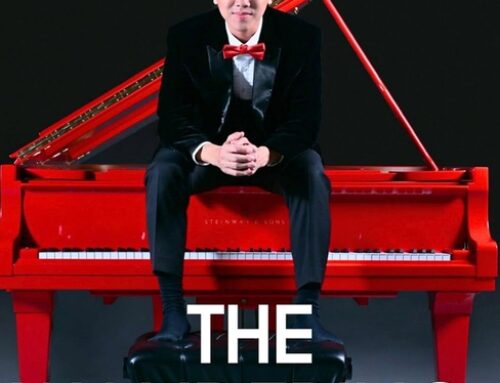

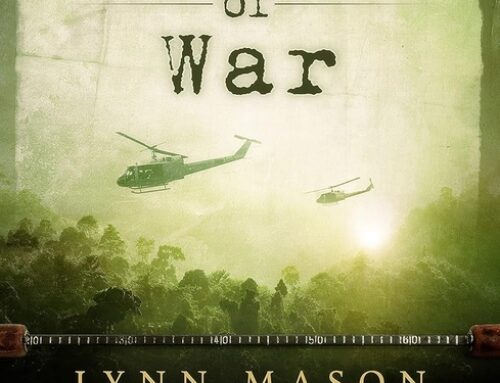
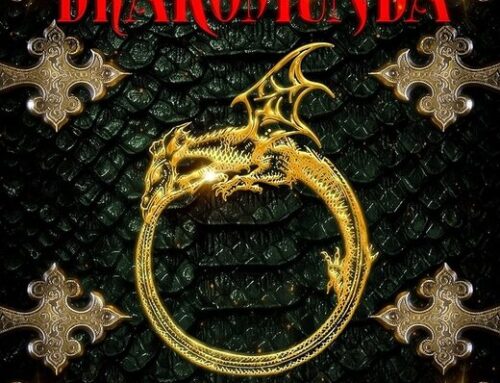
“…These are all signal moments that Gint Aras is a writer of great promise, but they don’t add up to a great novel. It’s an original, amusing and occasionally memorable one, but it’s also a frustrating one because it seems clear that the author has so much more to offer.”
I’m confused by what are essentially positive comments throughout this review, and the apparent change of heart here at the end. The brilliance of Gint Aras’ writing is that he is able to so deftly change between voices and maintain the integrity of each voice without spill-over or breaking character. And I feel that an honorable mention should be made of the ESL “broken English” of the Lithuanians which is yet another “color” on Gint’s palette that he uses with great effectiveness, in addition to Audra’s journals and Ken’s letters from Vietnam. This isn’t an example of a writer who has “so much more to offer.” This is a writer who stays true to the story he is telling, and the narrator he chose to tell it through. A good first-person novel is rare, but once you’ve decided that your narrator is a pot-head from Berwyn then you write from the perspective of a pot-head from Berwyn. The contrast between Andy’s prosaic vocabulary and his sweet, adled though often profound observations creates a level of tension that an amateur writer might accidently stumble into, but Gint Aras has proven his mastery by developing the plot for the plot’s sake rather than showmanship. Gint Aras is as genuine as it gets.
“…once you’ve decided that your narrator is a pot-head from Berwyn then you write from the perspective of a pot-head from Berwyn.”
Sure you do, but in coming to that decision one of the first questions you must ask yourself is this: “Can the perspective of a pot-head from Berwyn sustain a 90,000 word novel?” On the evidence of this book, it can’t – at least, not this particular pot-head and not for this reader. For me, the voice got old too quickly, despite the moments of expressive insight I mentioned above. I found this frustrating precisely because it is so obviously a deliberate creative choice of an author who can write in other ways. We know this because Aras switches voices at will. He certainly knows what he’s doing, I just didn’t love what he chose to do here.
That’s why I have mixed feelings about this book. A creative choice that doesn’t quite work is more admirable than messing something up because you’re clueless. It’s actually more admirable than succeeding through dumb luck, because it at least shows you’re thinking about the art and are conscious that important creative choices are there to be made (many emerging writers seem not to be). That’s why I found myself liking Aras and feeling keen to see what he does next, even if I didn’t love this particular novel.